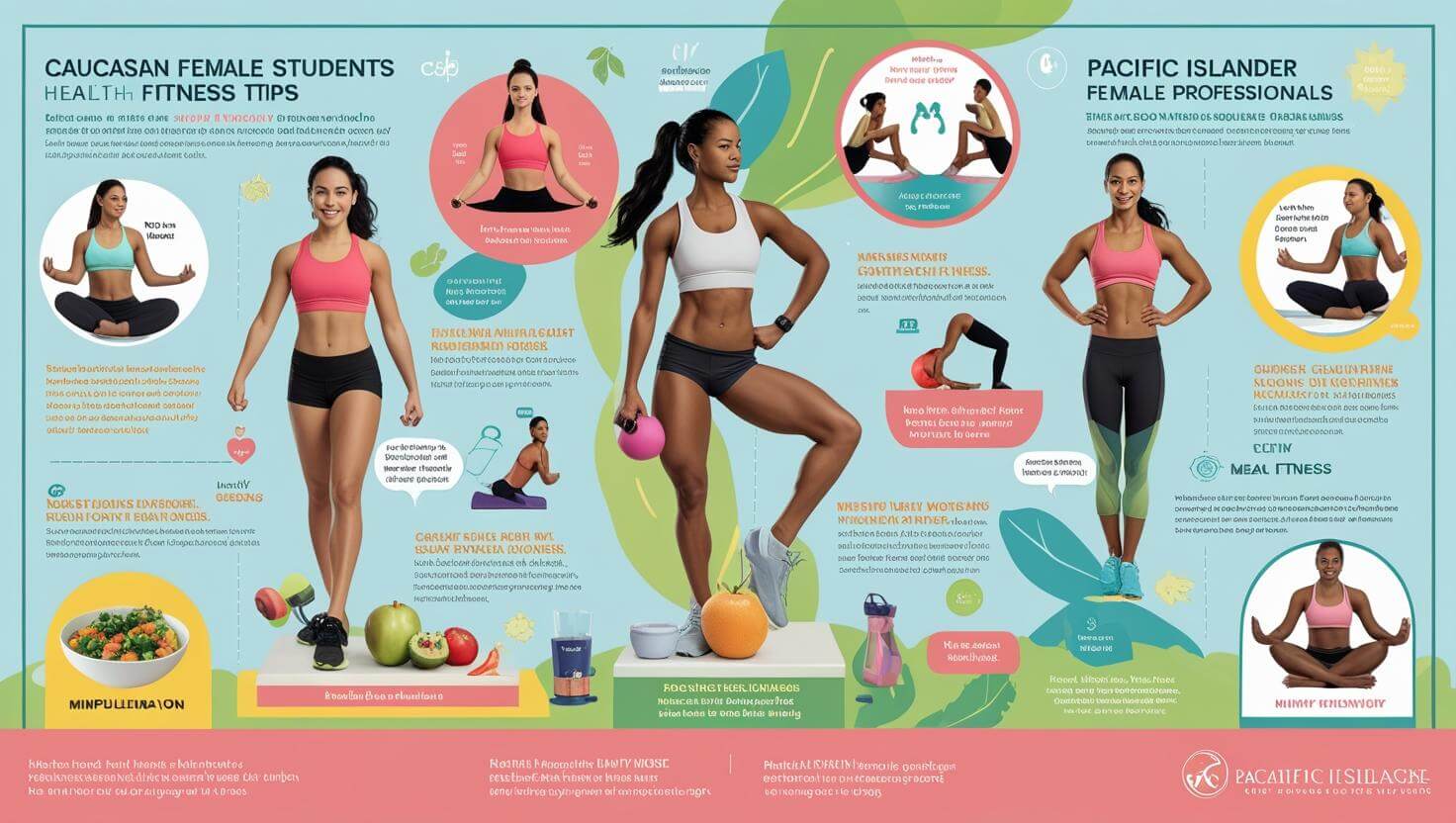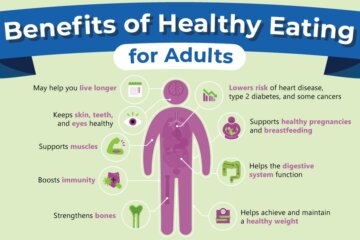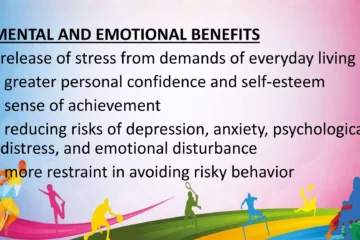“Health And Fitness Tips for Students And Professionals”
Feeling overwhelmed by the demands of your busy schedule? Balancing work or studies with personal life can take a toll on your health and fitness.
But what if there’s a way to boost your energy, sharpen your focus, and enhance your well-being without adding more stress to your day? Imagine waking up each morning feeling refreshed and ready to conquer your to-do list with ease.
It’s possible, and we’re here to show you how. In this guide, you’ll discover practical health and fitness tips tailored specifically for students and professionals like you. Whether you’re navigating late-night study sessions or enduring long meetings, these strategies will fit seamlessly into your lifestyle. Say goodbye to the midday slump and hello to a more vibrant, productive you. Ready to transform your routine and unlock a healthier, happier life? Keep reading to find out how simple changes can make a big difference. Your best self is waiting.
Balancing Busy Schedules
Juggling busy schedules requires smart health and fitness strategies. Quick workouts fit into lunch breaks, while nutritious snacks boost energy. Prioritize sleep and hydration to stay focused and energized all day.
Balancing busy schedules is crucial for students and professionals. Juggling academics, work, and personal life can be challenging. Yet, maintaining health and fitness is essential for productivity. By adopting smart strategies, anyone can achieve better balance in their daily routine.
Time Management Strategies
Effective time management boosts efficiency. Start by creating a daily schedule. List tasks based on priority. Allocate specific time slots for each activity. Use planners or digital apps to track your tasks. This helps in reducing stress and staying organized. Avoid multitasking. Focus on one task at a time to increase productivity. Set realistic goals. Break them into smaller tasks. This makes them easier to accomplish.
Prioritizing Self-care
Self-care is vital amidst a busy schedule. It keeps the mind and body healthy. Dedicate time for activities that relax you. Exercise regularly. Even short workouts improve mood and energy levels. Eat balanced meals. This fuels the body and enhances concentration. Sleep well. Aim for 7-8 hours of sleep each night. It rejuvenates the body and mind. Engage in hobbies or leisure activities. They provide a mental break from routine tasks. Remember, taking care of yourself is essential for long-term success.
Nutrition Essentials
Nutrition plays a vital role in maintaining health and fitness. Students and professionals often neglect it due to busy schedules. Eating well boosts energy and focus. It supports overall well-being. Incorporating nutrition essentials into daily routines can make a big difference.
Healthy Eating On A Budget
Healthy eating doesn’t need to be expensive. Start by planning meals for the week. Make a shopping list to avoid impulse buys. Choose seasonal fruits and vegetables; they’re often cheaper and fresher. Buy whole grains in bulk. They are cost-effective and nutritious. Canned beans are also affordable and protein-rich. Limit processed foods. They add up quickly in cost. Use leftovers creatively to reduce waste.
Quick Meal Prep Ideas
Meal prep saves time during busy weeks. Prepare meals on weekends. Cook a large batch of rice or quinoa. Store it in portions for easy access. Chop vegetables in advance for quick salads. Make overnight oats for a grab-and-go breakfast. Grill chicken breasts and freeze them. They can be used in salads or wraps. Boil eggs for a protein-packed snack. Keep healthy snacks like nuts and fruits handy.
Exercise For All Lifestyles
Exercise is vital for everyone, no matter their lifestyle. Students and professionals often struggle to find time for fitness. Busy schedules make regular workouts challenging. But it’s possible to fit exercise into daily life. Health doesn’t have to be sacrificed for work or study.
Simple Workouts For Home Or Office
Home or office workouts can be quick and effective. Try desk exercises like seated leg lifts. Stretch your arms and shoulders during breaks. Use a sturdy chair for tricep dips. These exercises require no special equipment. They can be done in minutes. A few minutes a day can boost energy and focus.
For home workouts, consider bodyweight exercises. Push-ups, squats, and lunges work well. They strengthen muscles and improve endurance. Yoga or stretching can be calming and restorative. Create a routine that fits your time and space. Consistency is more important than duration.
Incorporating Movement Into Daily Routine
Movement is key to staying active. Choose stairs over elevators whenever possible. Walking meetings can replace sitting ones. Stand while talking on the phone. These small changes add up. They can make a big difference in overall health.
Set reminders to move every hour. Take a brisk walk during lunch. Use a bike for short commutes. Exercise doesn’t always mean going to the gym. It’s about staying active throughout the day. Make movement a natural part of life.
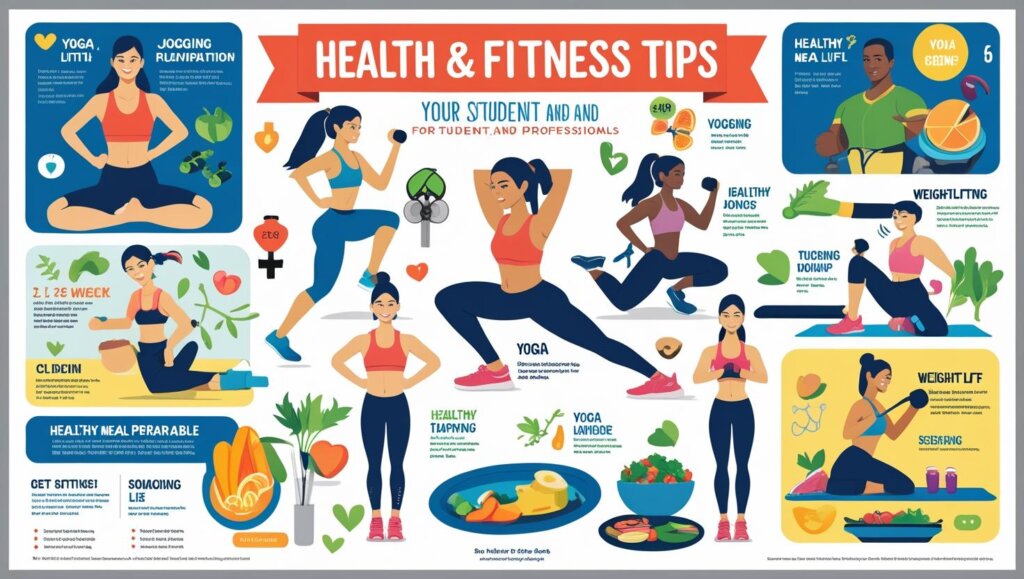
Mental Health Matters
Your mental well-being is just as crucial as physical health. Balancing the demands of academic life or a professional career can be overwhelming. It’s essential to recognize this and take proactive steps to support your mental health.
Imagine you’re juggling a tight deadline with an exam looming, all while trying to maintain a social life. It’s easy for stress to creep in. How do you find your calm amidst the chaos?
Stress Reduction Techniques
Effective stress reduction starts with identifying what triggers your anxiety. Is it a cluttered desk, a packed schedule, or constant notifications on your phone? Once you know your stressors, you can tackle them head-on.
- Organize your workspace to create a peaceful environment.
- Plan your tasks with a simple to-do list to prioritize and manage time efficiently.
- Limit distractions by setting boundaries with technology.
Consider trying some light exercises. A brisk walk or stretching can release tension and clear your mind. This simple practice could be your stress-buster.
Mindfulness And Meditation
Mindfulness is about being present. It helps you manage stress by focusing on the moment rather than worrying about the future or past. Have you ever paused to simply breathe and notice your surroundings?
Start with a few minutes of meditation daily. Sit comfortably, close your eyes, and concentrate on your breathing. Notice how it feels to inhale and exhale.
You might find yourself calmer and more centered. This practice doesn’t require hours; even five minutes can make a difference.
Do you find your mind racing with thoughts? Try a guided meditation app to keep you focused. These resources can be a great support in developing a mindfulness routine.
Remember, nurturing your mental health is an ongoing journey. What small step will you take today to prioritize your well-being?
Sleep And Recovery
In the hustle and bustle of student and professional life, one aspect often overlooked is sleep and recovery. Yet, it’s the cornerstone of maintaining good health and peak performance. Without adequate sleep, you may find yourself dragging through your day, unable to focus or accomplish tasks efficiently. Prioritizing restful sleep can transform your daily routine, providing renewed energy and clarity.
Importance Of Restful Sleep
Quality sleep isn’t just about the number of hours. It’s about how well you rest during those hours. Restful sleep helps your body repair itself, strengthens your immune system, and improves your mood. Imagine waking up refreshed and ready to tackle the day ahead. That’s the power of restful sleep.
Research shows that poor sleep can lead to decreased productivity and increased stress. You might notice you’re more irritable or forgetful when sleep-deprived. Consider how much better you feel after a good night’s sleep—it’s like having a personal energy boost.
Ask yourself: Are you giving your body the rest it needs? If not, what can you change today to improve your sleep quality?
Creating A Relaxing Sleep Environment
Your sleep environment plays a crucial role in how well you rest. A cluttered, noisy room can disrupt your sleep cycle. Start by ensuring your bedroom is a quiet, peaceful space. Simple changes can have a big impact.
Think about the lighting. Use blackout curtains to keep your room dark at night. Soft lighting can help signal to your brain that it’s time to wind down. You might find that you fall asleep faster and stay asleep longer.
Consider the temperature. Most people sleep better in a cool room. Adjust your thermostat or use a fan to maintain a comfortable climate. Your bed should be a haven of relaxation, helping you drift into a restful sleep.
What changes can you make to your sleep environment tonight? Sometimes, small tweaks lead to big improvements in sleep quality.
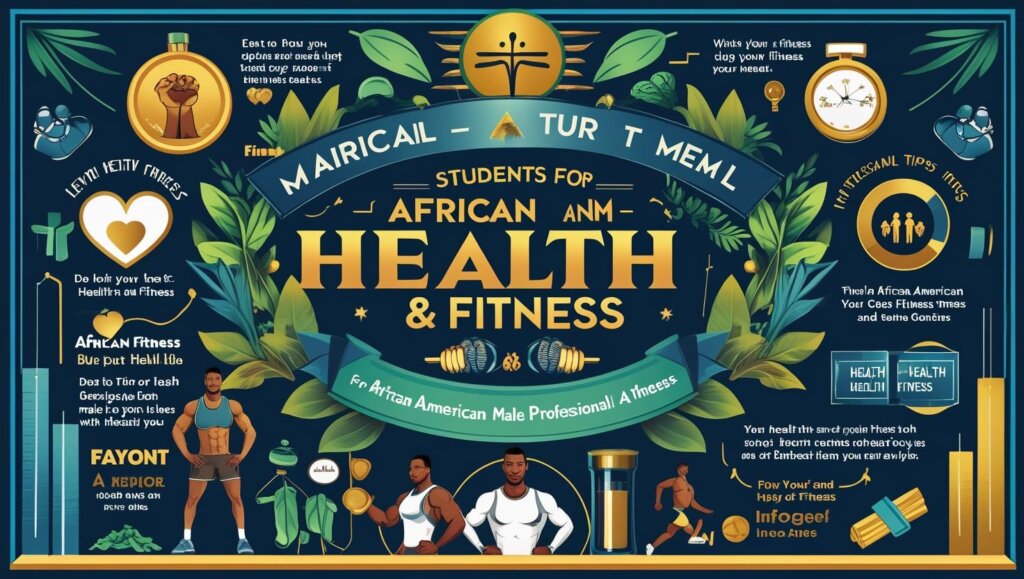
Hydration And Energy
Hydration and energy are crucial for students and professionals. Staying hydrated boosts focus and energy levels. Balancing hydration with natural energy sources can enhance productivity. Let’s explore the benefits of hydration and natural energy boosters.
Benefits Of Staying Hydrated
Water is vital for the body. It helps maintain energy and focus. Proper hydration aids in digestion and nutrient absorption. Drinking enough water can prevent fatigue. Students and professionals often face stress. Hydration helps manage stress and improve mood. It also supports brain function and memory.
Dehydration leads to tiredness and reduced concentration. Regular water intake keeps the body alert. It also aids in physical performance. For students, this means better study sessions. For professionals, it means efficient work hours. Hydration is simple and effective.
Natural Energy Boosters
Natural energy boosters are a healthy choice. They provide sustained energy without crashes. Green tea is a popular option. It contains caffeine and antioxidants. Nuts and seeds offer protein and healthy fats. They provide long-lasting energy.
Fruits like bananas and apples are excellent choices. They contain natural sugars and fibers. These fruits offer a quick energy boost. Oats are another great option. They are rich in fiber and release energy slowly. This keeps you full and energized longer.
Dark chocolate is a delightful energy booster. It contains caffeine and antioxidants. Enjoy it in moderation for a quick pick-me-up. Incorporating these natural boosters is easy. They fit into any diet and offer numerous benefits.
Building Healthy Habits
Building healthy habits is essential for students and professionals. Balancing work, study, and life can be challenging. Yet, a focus on health and fitness can make it manageable. Establishing routines can enhance energy levels and improve mental clarity. This helps in tackling daily tasks with vigor.
Setting Achievable Goals
Start by setting clear, achievable goals. Small steps lead to big changes. Aim for goals that fit your lifestyle. Whether it’s daily exercise or eating more veggies, make it practical. Write your goals down. This makes them more tangible. Review and adjust as needed. Consistency is key.
Tracking Progress
Track your progress to stay motivated. Use apps or journals to record milestones. Note changes in energy, mood, and health. Celebrate small victories. This keeps you inspired and focused. Tracking helps identify what’s working. Adjust your habits based on feedback. Stay committed for lasting results.
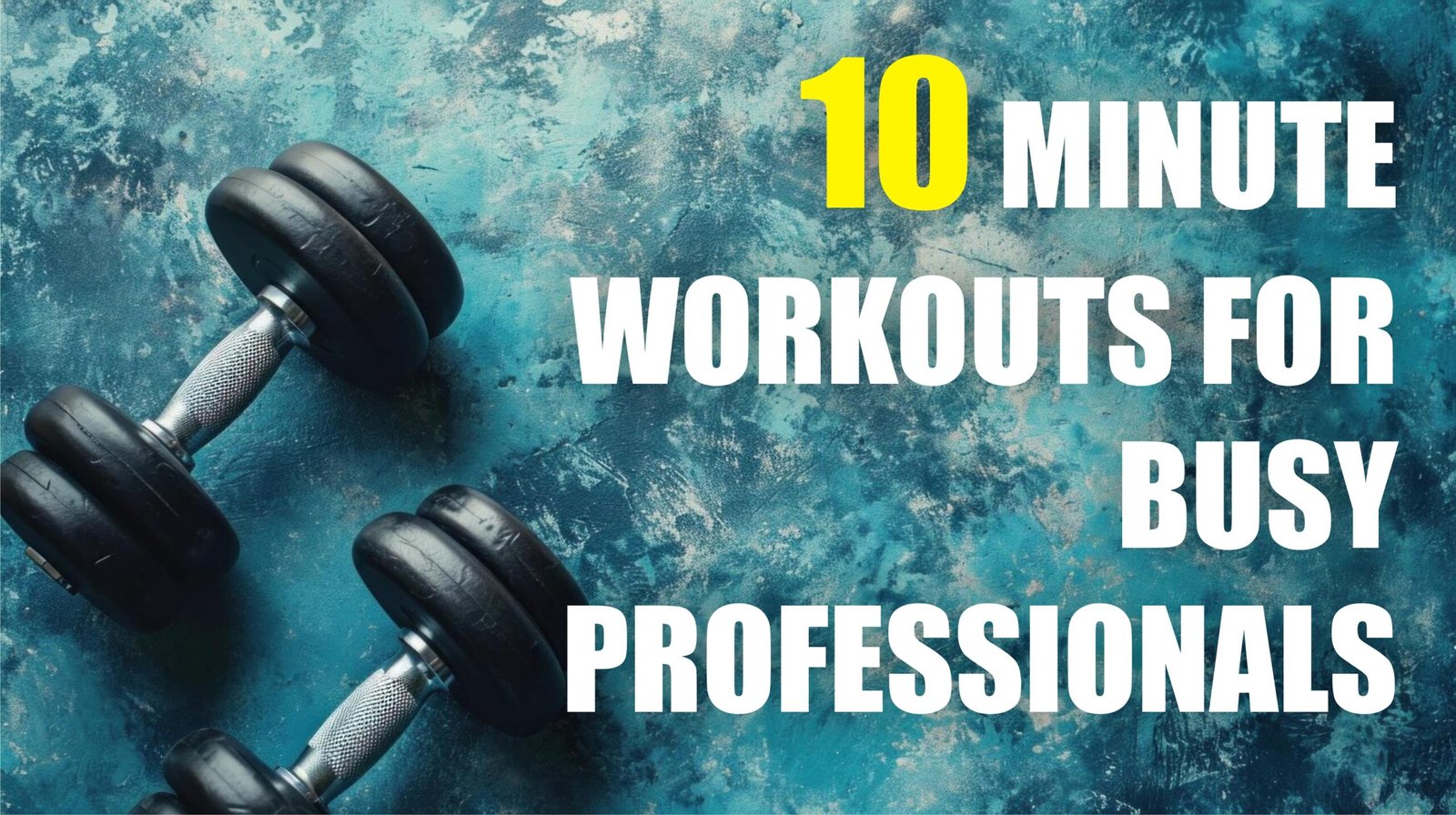
Credit: medicaldarpan.com
Frequently Asked Questions
What Are Simple Health Tips For Busy Students?
Busy students can stay healthy by prioritizing sleep, staying hydrated, and eating balanced meals. Incorporate quick exercises like walking or stretching. Manage stress through mindfulness techniques and maintain a consistent routine. Staying organized can also improve mental well-being, supporting overall health.
How Can Professionals Maintain Fitness At Work?
Professionals can maintain fitness by taking short breaks to stretch or walk. Use standing desks and drink plenty of water. Consider using stairs instead of elevators. Schedule regular workouts and meal prep to ensure balanced nutrition. These small changes can significantly improve health over time.
Why Is Hydration Important For Students?
Hydration is crucial for students as it boosts concentration and cognitive function. Drinking water supports physical health and helps maintain energy levels. Staying hydrated can prevent headaches and fatigue. Always carry a water bottle and drink regularly throughout the day for optimal health benefits.
Can Meditation Help Professionals Reduce Stress?
Yes, meditation can significantly reduce stress for professionals. It promotes relaxation and improves focus, increasing productivity. Practicing meditation regularly can enhance emotional well-being and reduce anxiety. Even short sessions can have a positive impact. Integrate meditation into your daily routine for better stress management.
Conclusion
Staying healthy boosts both mood and productivity. Simple habits make a big difference. Drink water. Move often. Eat balanced meals. Prioritize sleep each night. Small changes lead to better health. Remember to take breaks during busy days. Mental health is important too.
Stress management helps maintain balance. Practice mindfulness or deep breathing. Find what works best for you. Consistency is key in building healthy habits. Make health a priority. It benefits both students and professionals. Invest in your well-being today. Your future self will thank you.
Start small, stay committed. Health is wealth.

“As the voice behind Radiant Glow Health, we are dedicated to being your ultimate wellness and vitality companion. Our mission is to inspire and guide you on your journey to a healthier and more vibrant life. Join us as we explore holistic health practices and empower you to radiate wellness from within.”
